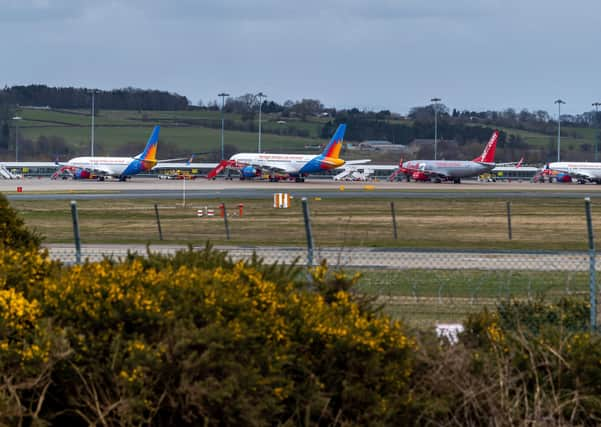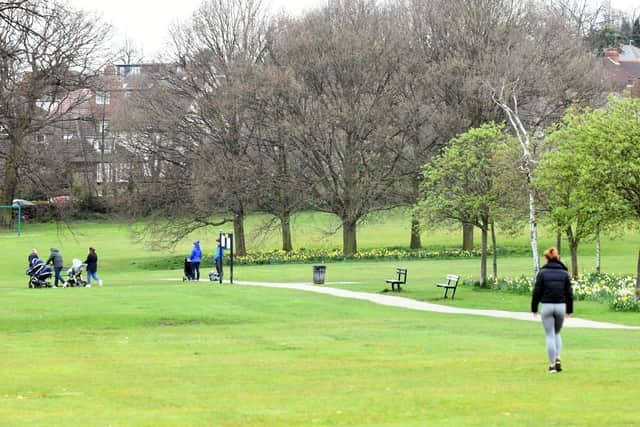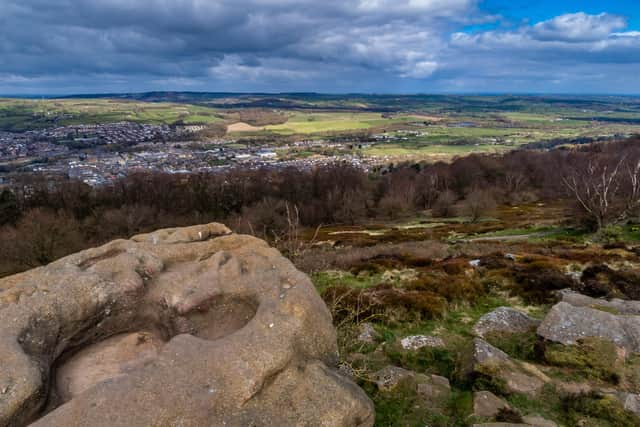Less air and road travel will be good for the soul after Covid-19: David Alcock


That is the question which geographer John Adams posed in 2001. It would be difficult to find anyone who would answer in the negative.
But the situation is complicated by its flipside: “Would you like a car, unlimited air miles and a capacity to travel anywhere you would like to?”
Advertisement
Hide AdAdvertisement
Hide AdUntil very recently, it would have been extremely tempting to answer in the affirmative. More capacity to travel would mean that we could enjoy more holidays and see more of our family and friends in far-flung places, wouldn’t it?


More exposure to different people and cultures from around the world would also have cultural benefits: travel broadens the mind. Most economists would add that with our ‘tourist pounds’, we are able to spread the benefits of economic growth all over the world.
But Adams pointed out that if we live in a world in which everyone’s wish for more travel is granted, then life will become more challenging for everyone, and especially so for the poor and disenfranchised. His especial beef was with the increasing propensity for people to travel further, faster, more frequently, and more excessively than ever before – a trend he called ‘hypermobility’.
One of Adams’s concerns was the environmental cost of excessive travel. I share those concerns, and I cycle to work and limit my flying to once every couple of years, as my contribution to allaying them. But as an optimist, I look forward to an era with unlimited ‘green’ energy, therefore in a generation or so, his concerns about pollution should, I hope, become baseless.
Advertisement
Hide AdAdvertisement
Hide AdHowever, regardless of the environmental costs of travel, Adams argued convincingly that a world in which more people can travel where they want and when they want, would be “dangerous, ugly, bleak, crime-ridden, alienated, anonymous, undemocratic (and) socially polarised”.


Was Adams whistling in the wind? Twenty years after his call to curtail ‘hypermobility’, outside of a handful of cities in affluent countries, there have been few signs of a significant shift in ‘car culture’ anywhere in the world... until recent weeks.
Perhaps a new window of opportunity has been opened which may allow us to reverse the trend of hypermobility. People across the world have begun to get used to different ways of life, including working from home and limiting the journeys we make to undertake exercise.
There are more people than usual exercising in neighbourhood streets and open spaces. This seems paradoxical – in a lockdown, surely the opposite would be true? But without gyms to visit and with trips to beauty spots discouraged, many people are exploring the areas near to their homes. Might we have had a taste of a more sustainable future?
Advertisement
Hide AdAdvertisement
Hide AdYes, our encounters with each other have been awkward – a kind of coronavirus sidestep takes place to keep two metres of distance between us.
However, the exchange of smiles, nods and friendly words has been heartening after hours cooped up indoors. And then there’s the joy of seeing friends and neighbours out on their perambulation, as well as the intangible benefit of connecting with one’s local ‘turf’.
I see vast potential in continuing with some of these ways of life after the lockdown is loosened. I am not alone – the AA President, Edmund King, says that the coronavirus crisis will change the way that we live, work and travel, and that some of the money earmarked for road infrastructure could instead be channelled into enhancing broadband provision to help home working.
And planners from Jan Gehl to Jeff Speck have lauded the concept of the ‘walkable city’. Their research shows that small exchanges with others – whether they are strangers or friends, colleagues or shop-workers – give life a much-needed lift and an indefinable buzz to our everyday life.
Advertisement
Hide AdAdvertisement
Hide AdCutting back on our excessive use of transport would sacrifice some of the benefits of frequent travel, but is this not worthwhile in order, as Adams put it, to “protect and enhance what we value in nature and our relations with friends and neighbours”?
Community cohesion would improve, our streets would be safer, and our planet would thank us.
David Alcock teaches Geography at Bradford Grammar School and blogs at www.alcock.blog
Editor’s note: first and foremost - and rarely have I written down these words with more sincerity - I hope this finds you well.
Advertisement
Hide AdAdvertisement
Hide AdAlmost certainly you are here because you value the quality and the integrity of the journalism produced by The Yorkshire Post’s journalists - almost all of which live alongside you in Yorkshire, spending the wages they earn with Yorkshire businesses - who last year took this title to the industry watchdog’s Most Trusted Newspaper in Britain accolade.
And that is why I must make an urgent request of you: as advertising revenue declines, your support becomes evermore crucial to the maintenance of the journalistic standards expected of The Yorkshire Post. If you can, safely, please buy a paper or take up a subscription. We want to continue to make you proud of Yorkshire’s National Newspaper but we are going to need your help.
Postal subscription copies can be ordered by calling 0330 4030066 or by emailing [email protected]. Vouchers, to be exchanged at retail sales outlets - our newsagents need you, too - can be subscribed to by contacting subscriptions on 0330 1235950 or by visiting www.localsubsplus.co.uk where you should select The Yorkshire Post from the list of titles available.
If you want to help right now, download our tablet app from the App / Play Stores. Every contribution you make helps to provide this county with the best regional journalism in the country.
Sincerely. Thank you.
James Mitchinson
Editor